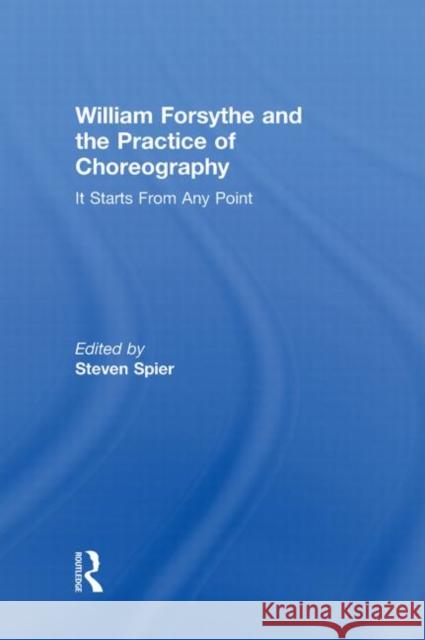William Forsythe and the Practice of Choreography : It Starts From Any Point » książka
William Forsythe and the Practice of Choreography : It Starts From Any Point
ISBN-13: 9780415978224 / Angielski / Twarda / 2011 / 200 str.
William Forsythe and the Practice of Choreography : It Starts From Any Point
ISBN-13: 9780415978224 / Angielski / Twarda / 2011 / 200 str.
(netto: 673,60 VAT: 5%)
Najniższa cena z 30 dni: 654,86
ok. 22 dni roboczych.
Darmowa dostawa!
William Forsythe is one of the most, if not the most, important choreographers of the last 25 years. As director of the Frankfurt Ballet (1984-2004) he has been lauded for reinvigorating the language of classical ballet (he is often referred to as Balanchine's heir) in a fearless and comprehensiveness examination of its most fundamental assumptions and precepts. With his far-ranging references and insistence that ballet is a contemporary medium, Forsythe has created a crossover audience, giving this edited collection of essays interdisciplinary appeal - extending beyond the ballet and dance communities.
William Forsythe is one of the most, if not the most, important choreographers of the last 25 years. As director of the Frankfurt Ballet (1984-2004) he has been lauded for reinvigorating the language of classical ballet (he is often referred to as Balanchine's heir) in a fearless and comprehensiveness examination of its most fundamental assumptions and precepts. He has created a new audience for contemporary ballet through his engagement with contemporary intellectual and cultural currents. His voracious intellectual curiosity and insistence that ballet is a body of knowledge that can be used to address current concerns has made him controversial. His critical acceptance in Great Britain and the USA has been much slower to arrive than on the continent, but finally the company's recent tours to London and the US have confirmed his reputation there.
With his far-ranging references and insistence that ballet is a contemporary medium, Forsythe has created a crossover audience, giving this edited collection of essays interdisciplinary appeal -- extending beyond the ballet and dance communities.











